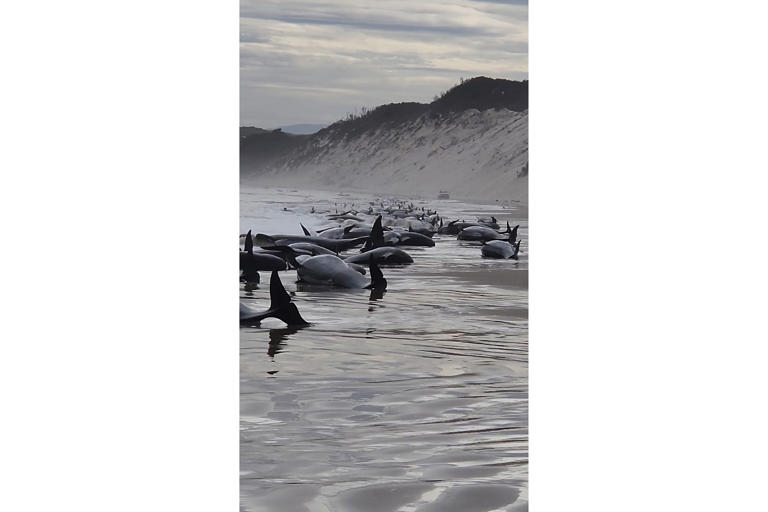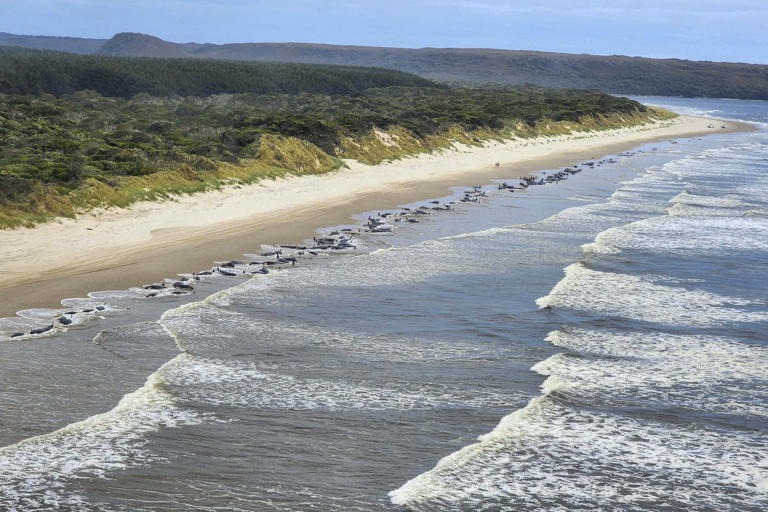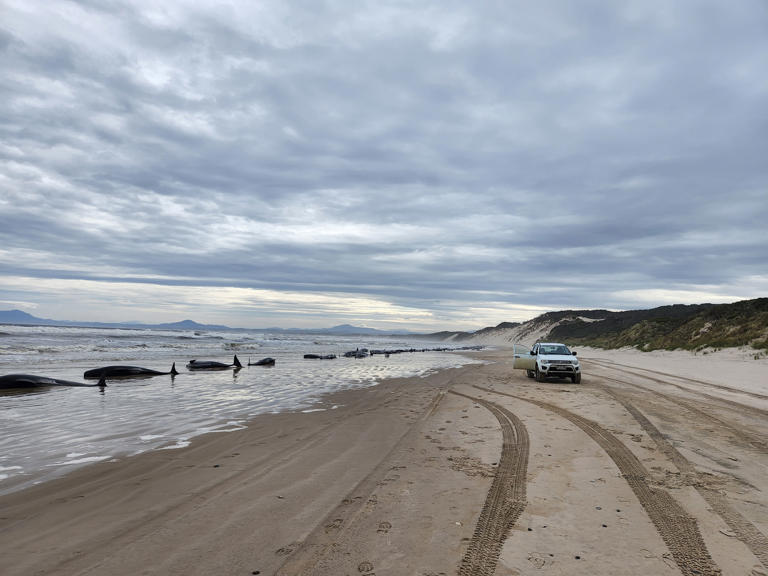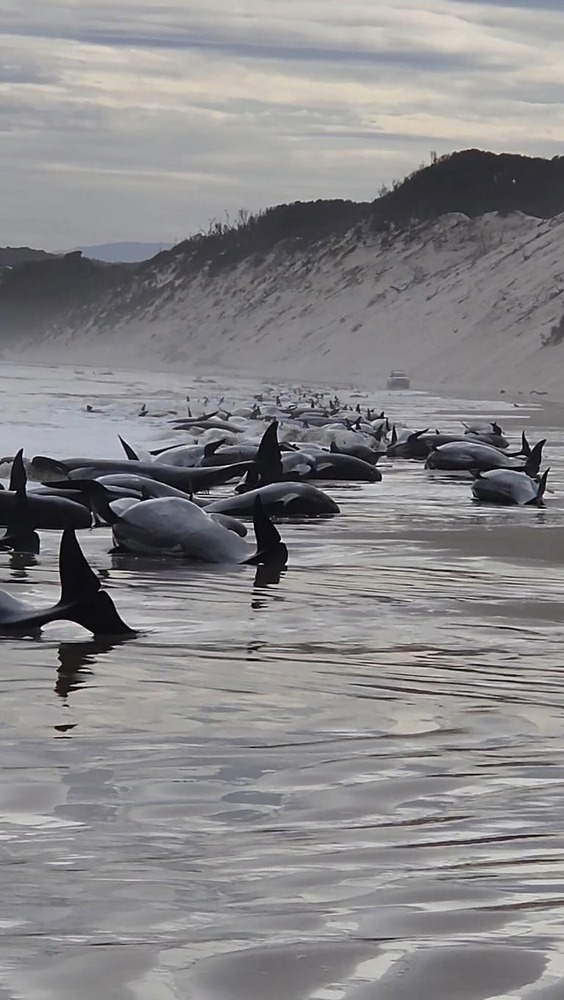Eventhough earthquakes are happening globally almost always on a small scale , there has been a large cluster of earthquakes over the past few weeks and also some volcanic eruptions with a recent small warning of a major volcanic eruption being now possible as a consequence of all of these recent events.
I wonder how loudly these events are being broadcast through the oceans and whether it has set off a panic response with the sounds waves broadcast through the oceans being in in part why this mass beaching is happening. With the sonar capacity of the whales, I imagine multiple large scales sound waves bombarding their sensory systems would be damaging to their brains or provide great discomfort to them.Either way it is a large amount of these majestic mammals affected.
https://www.msn.com/en-au/news/world/some-230-whales-beached-in-tasmania-rescue-efforts-underway/ar-AA12482T?ocid=msedgntp&cvid=c4c364f0430b4797aaaf5f7629f579e6

HOBART, Australia (AP) — About 230 whales have been stranded on Tasmania’s west coast, just days after 14 sperm whales were found beached on an island off the southeastern coast.

The pod, which is stranded on Ocean Beach, appears to be pilot whales and at least half are presumed to still be alive, the Department of Natural Resources and Environment Tasmania said Wednesday.

A team from the Marine Conservation Program was assembling whale rescue gear and heading to the area, the department said.
A resident told the Australian Broadcasting Corp. the whales were visible near the entrance to Macquarie Harbour and described the stranding as a “massive event.”
HOBART, Australia (AP) — About 230 whales have been stranded on Tasmania’s west coast, just days after 14 sperm whales were found beached on an island off the southeastern coast.
This photo provided by Huon Aquaculture, shows whales stranded at Macquarie Harbour in Strahan, Tasmania, Australia Wednesday, Sept. 21, 2022. About 230 whales have been stranded on Tasmania’s west coast, just days after 14 sperm whales were found beached on an island off the southeastern coast.
This photo provided by Huon Aquaculture, shows whales stranded at Macquarie Harbour in Strahan, Tasmania, Australia Wednesday, Sept. 21, 2022. About 230 whales have been stranded on Tasmania’s west coast, just days after 14 sperm whales were found beached on an island off the southeastern coast.
The pod, which is stranded on Ocean Beach, appears to be pilot whales and at least half are presumed to still be alive, the Department of Natural Resources and Environment Tasmania said Wednesday.
About 230 whales have been stranded on Tasmania’s west coast, just days after 14 sperm whales were found beached on an island off the southeastern coast. (Andrew Breen/Huon Aquaculture via AP)A team from the Marine Conservation Program was assembling whale rescue gear and heading to the area, the department said.
A resident told the Australian Broadcasting Corp. the whales were visible near the entrance to Macquarie Harbour and described the stranding as a “massive event.”
David Midson, general manager of the West Coast Council, urged people to stay clear.
“Whales are a protected species, even once deceased, and it is an offence to interfere with a carcass,” the environment department said.
Griffith University marine scientist Olaf Meynecke said it’s unusual for sperm whales to wash ashore. He said that warmer temperatures could also be changing the ocean currents and moving the whale’s traditional food sources.
“They will be going to different areas and searching for different food sources,” Meynecke said. “When they do this, they are not in the best physical condition because they might be starving so this can lead them to take more risks and maybe go closer to shore.”
Fourteen sperm whales were discovered Monday afternoon on King Island, part of the state of Tasmania in the Bass Strait between Melbourne and Tasmania’s northern coast. The department said it is not unusual for sperm whales to be sighted in Tasmania.
